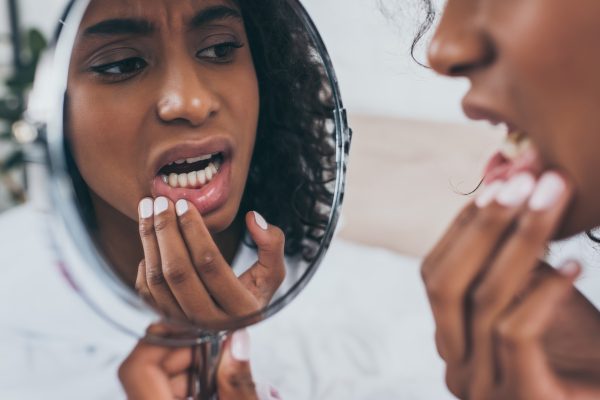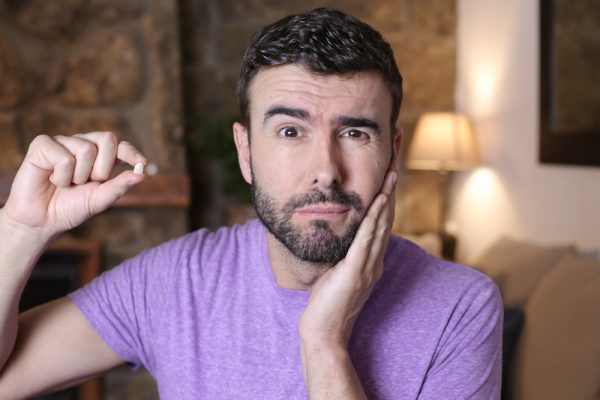Handling Dental Emergencies While Traveling
Dental emergencies can happen at any time, even when you’re traveling or living abroad. It’s essential to be prepared and knowledgeable about what to do in such situations, ensuring you receive the necessary dental care promptly.
At Northwind Dental, our Wasilla dentist wants patients to know how to handle emergency dental situations regardless of where they are.

Emergency Dental Care Services Abroad
Finding an Emergency Dentist Abroad
Finding an emergency dentist while abroad can be challenging but not impossible. Here are some ways to locate emergency dental services:
- Research in Advance: Before your trip, research emergency dental clinics or dentists in the area you will be visiting.
- Ask for Recommendations: Seek recommendations from locals, hotel staff, or fellow travelers who have visited the same location.
- Contact Your Embassy or Consulate: If you’re in a foreign country and need assistance, reach out to your embassy or consulate.
- Use Online Directories: Online directories specific to emergency dental services can help you locate dentists or clinics near your location.
Insurance Coverage for Emergency Dentistry Abroad
Understanding your insurance coverage is crucial when seeking emergency dental care abroad. Here’s what you need to consider:
- Review Your Policy: Thoroughly read your travel insurance policy to determine if emergency dental care is covered. Some policies might include dental emergencies, while others may require an additional dental insurance rider.
- Network Providers: Inquire with your insurance provider about their network of approved dental care providers abroad. Using in-network providers can streamline the claims process and reduce your out-of-pocket expenses.
- Documentation: Keep all receipts, treatment records, and any other relevant documentation to submit a claim to your insurance provider. Clear documentation will help ensure a smooth reimbursement process.
- Emergency Hotline: Save the emergency hotline number provided by your insurance company. This can be a valuable resource if you need assistance in finding a suitable dentist or clinic in your area.
Dental Emergency Travel Kit
Putting together a dental emergency travel kit can help you manage unexpected oral health issues while abroad. Here’s what you might include:
- Pain Relievers: Over-the-counter pain relievers like ibuprofen can help manage dental pain temporarily until you can access professional care.
- Temporary Filling Material: Dental cement or temporary filling material can be used to temporarily seal a cavity or a lost filling until you can see a dentist.
- Dental Wax: Useful for covering sharp or rough edges of a broken tooth or orthodontic appliance to prevent irritation.
- Floss and Toothbrush: Maintain good oral hygiene by packing travel-sized dental floss and a toothbrush.
- Gauze: In case of bleeding or to create pressure on a sensitive area.
- Contact Information: Compile a list of local dental clinics, emergency hotlines, and your insurance provider’s contact details.
Language Barrier during Dental Emergencies
Managing dental emergencies in a foreign country with a language barrier can be challenging, but there are strategies to overcome communication obstacles:
- Translation Apps: Use translation apps or language translation devices to communicate your symptoms and concerns to the dentist.
- Bilingual Assistance: Seek assistance from bilingual individuals who can help translate your needs to the dental staff. Hotel staff, tour guides, or local friends can be valuable resources in facilitating communication.
- Embassy or Consulate: Your embassy or consulate can provide guidance, recommend English-speaking dentists, or arrange for an interpreter to accompany you during the dental visit.
- Written Information: Carry a written document in the local language that explains your dental emergency, symptoms, and any specific concerns.

Tips for Dental Emergencies While Traveling
When you’re traveling abroad, unexpected dental emergencies can occur. Here are some valuable tips to help you manage dental emergencies while on your journey:
- Be Prepared: Before you embark on your trip, research and note the contact information of emergency dental clinics or dentists in the areas you’ll be visiting. This way, you’ll have the information readily available in case of an emergency.
- Pack Essential Items: Include dental emergency essentials in your travel kit. These may include over-the-counter pain relievers, dental floss, temporary dental filling material, cotton balls, and sterile gauze. Having these supplies can provide temporary relief and protection until you can seek professional care.
- Protect Your Teeth: If you’re planning to engage in adventurous activities or sports during your trip, consider wearing a mouthguard. Mouthguards can prevent dental injuries and reduce the risk of chipped or knocked-out teeth.
- Handle a Knocked-Out Tooth: If a tooth gets knocked out, handle it carefully by the crown (top) and avoid touching the root. Rinse the tooth with water if it’s dirty, but don’t scrub or remove any attached tissues. Try to place the tooth back into its socket, or if that’s not possible, keep it moist by placing it in milk or saliva. Seek immediate dental care.
- Manage a Toothache: Toothaches can be extremely uncomfortable, but you can try some temporary measures until you can see a dentist. Rinse your mouth with warm saltwater to alleviate pain and reduce swelling. Avoid placing aspirin directly on the tooth or gums, as it can cause chemical burns.
- Handle a Broken or Chipped Tooth: If you experience a broken or chipped tooth, rinse your mouth with warm water to clean the area. If there’s bleeding, apply gentle pressure with sterile gauze. Use a cold compress on the affected area to reduce swelling and relieve pain. Seek dental care as soon as possible.
Emergency Dentistry for Children Abroad
Children may also experience dental emergencies while traveling abroad, and it’s crucial to address their dental needs promptly. Here are some key points to consider when it comes to emergency dentistry for children abroad:
- Find a pediatric emergency dentist
- Communicate with the dentist
- Maintain good oral hygiene.
- Pack necessary items
- Follow post-treatment instructions
Emergency Dentistry for Seniors Abroad
Seniors may encounter dental emergencies while abroad, and it’s important to address their unique dental needs. Here are some considerations for emergency dentistry for seniors abroad:
- Medical history and medication
- Dental insurance coverage
- Accessibility and mobility
- Communication and language
- Denture emergencies

Frequently Asked Questions
Dental insurance coverage varies depending on your policy and insurance provider. While some insurance plans may offer coverage for emergency dental care abroad, others may have limitations or exclusions. It’s crucial to review your dental insurance policy or contact your insurance provider to understand the extent of your coverage while traveling abroad.
If you don’t have dental insurance coverage while abroad, consider the following options:
- Self-Pay: Inquire about the cost of emergency dental services upfront and be prepared to pay out-of-pocket.
- Travel Insurance: Some comprehensive travel insurance plans may offer limited coverage for dental emergencies while abroad.
- Local Healthcare System: In some cases, emergency medical services, including dental care, may be available at public hospitals or clinics at a lower cost than private dental clinics.
- Dental Tourism Organizations: Dental tourism organizations may provide information on reputable dental clinics that offer emergency services at a fraction of the cost in your home country.
Offer a clear explanation of your symptoms, any known allergies or medications you’re taking, and your insurance information, if applicable. If possible, have a translation app or phrasebook handy for effective communication.
While not guaranteed everywhere, many popular tourist destinations and urban areas have English-speaking dental professionals. Researching and planning ahead can increase your chances of finding one.
No Matter Where You Are in the World, Be Ready for Dental Emergencies
Remember, dental emergencies don’t have to ruin your travel experiences. With proper planning, access to emergency dental care services, and a proactive approach to maintaining oral health while abroad, you can enjoy your adventures knowing that you’re prepared for any unexpected dental situation that may arise.
For more information or tips on how to prevent dental emergencies while traveling, contact our Wasilla dental practice at (907) 373-2440. So, go out there, explore the world, and embrace your travels with a bright and healthy smile!
